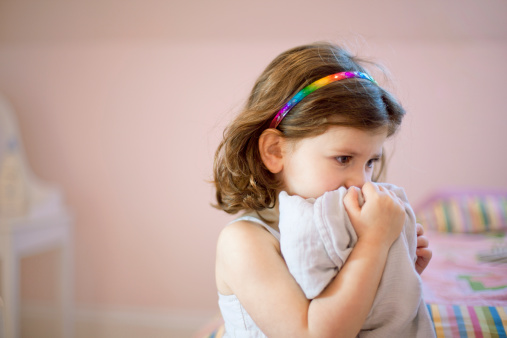 Today I met with two very attuned and caring parents who have, after many efforts at repair, made the decision to end their marriage. Topmost on their list of concerns was the impact their divorce might have on their children, specifically that the decision to divorce might result in their children losing hope for the future. I have so much empathy for parents burdened with worry about the painful crisis their divorce might create for their children.
It is important to keep in perspective that it is entirely possible to keep the emotional crisis of divorce from ever becoming a trauma for children. Crises are difficult turning points, but inherent in a crisis is the potential for healing. Traumas inflict deep wounds and can derail healthy development in children. In addition, the effects of trauma will reverberate across generations unless repaired.
Two negative potential consequences of divorce can be especially traumatic for children, especially those who have secure attachments to both parents: 1. that the conflict between their parents never resolves, and children are perpetually kept in the middle of that conflict; and 2. that a parent’s contact with their children is so limited after the divorce that the children feel abandoned (or as one child sadly told me, “I didn’t know I would be divorced too”).
How parents choose to divorce is key. Any process that supports parents’ ability to maintain loving focus on the needs of their children is valuable for many reasons. For the parents themselves, it helps to set the stage for the transition to effective co-parenting. Respectful co-parenting creates the environment in which children can be resilient and thrive.
A child-centered divorce process can also have immediate benefits for children in the following ways: children will likely be more calm and centered when there is a tone of respect rather than acrimony between their parents during the divorce; it benefits children when they can experience predictability and lack of drama during an already uncertain time; children are kept out of the dangerous middle of adult-level discussions and conflict; children feel safer and are soothed when parents begin to co-parent effectively.
Collaborative Practice is one way to create a child-centered divorce process. For more information, please visit the Collaborative Law Institute of Minnesota website.
Today I met with two very attuned and caring parents who have, after many efforts at repair, made the decision to end their marriage. Topmost on their list of concerns was the impact their divorce might have on their children, specifically that the decision to divorce might result in their children losing hope for the future. I have so much empathy for parents burdened with worry about the painful crisis their divorce might create for their children.
It is important to keep in perspective that it is entirely possible to keep the emotional crisis of divorce from ever becoming a trauma for children. Crises are difficult turning points, but inherent in a crisis is the potential for healing. Traumas inflict deep wounds and can derail healthy development in children. In addition, the effects of trauma will reverberate across generations unless repaired.
Two negative potential consequences of divorce can be especially traumatic for children, especially those who have secure attachments to both parents: 1. that the conflict between their parents never resolves, and children are perpetually kept in the middle of that conflict; and 2. that a parent’s contact with their children is so limited after the divorce that the children feel abandoned (or as one child sadly told me, “I didn’t know I would be divorced too”).
How parents choose to divorce is key. Any process that supports parents’ ability to maintain loving focus on the needs of their children is valuable for many reasons. For the parents themselves, it helps to set the stage for the transition to effective co-parenting. Respectful co-parenting creates the environment in which children can be resilient and thrive.
A child-centered divorce process can also have immediate benefits for children in the following ways: children will likely be more calm and centered when there is a tone of respect rather than acrimony between their parents during the divorce; it benefits children when they can experience predictability and lack of drama during an already uncertain time; children are kept out of the dangerous middle of adult-level discussions and conflict; children feel safer and are soothed when parents begin to co-parent effectively.
Collaborative Practice is one way to create a child-centered divorce process. For more information, please visit the Collaborative Law Institute of Minnesota website.
Two Paths, One Decision: The Divorce Dilemma
Emily and Daniel were in love. Their love story had once been the envy of the neighborhood—a whirlwind romance that blossomed into a marriage filled with laughter, shared dreams, and whispered secrets. But as the years went by, cracks appeared in their fairy tale....



